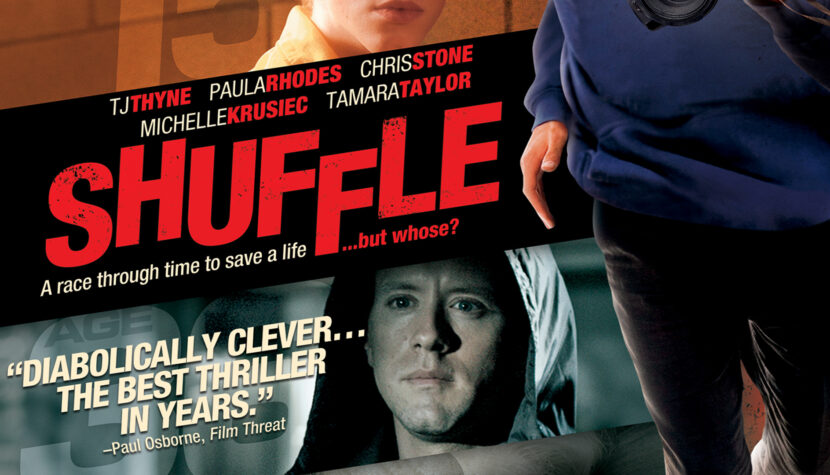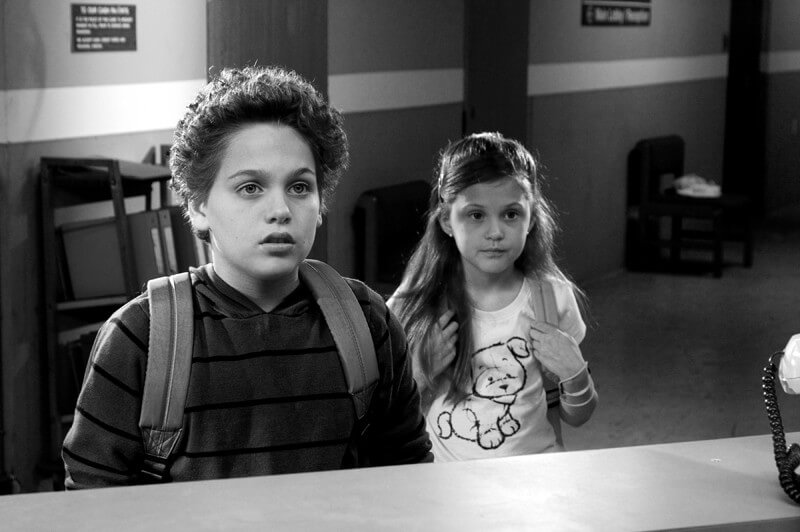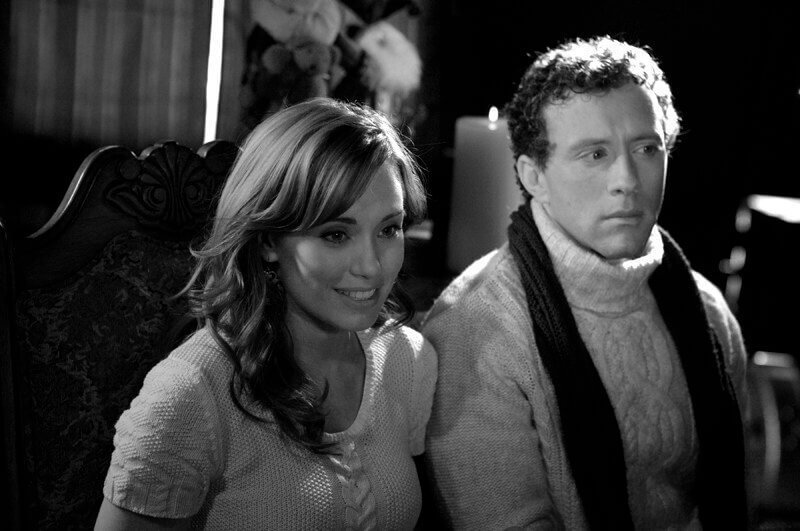SHUFFLE. Quite unusual science fiction film

There are spectacular, loud, adrenaline-filled films, created for millions and earning millions. There are smaller films, less flashy, made for less money, with fewer tickets sold. There are also completely small, niche films, barely noticeable in existence. And there are films that are entirely microscopic, which probably will never achieve success, lingering in the background, with one of the few traces being the text you are currently reading. Such a film is Shuffle. The black-and-white debut of an unknown creator will probably end up deep in the recesses of the internet, on the 45th page of the torrent directory. Shuffle is a film that deserves more, although it has a chance for more.
All the more, I am keen on a clear statement – Shuffle is great because it’s original, coherent, intriguing, and simply smart in an unconventional, unobtrusive way.

I’ll try to introduce you to the content without revealing twists, of which there are a few significant ones in Shuffle. It’s about a guy who doesn’t experience his days in order. Every time he closes his eyes and falls asleep, he wakes up on a different day of his life. So, at one point, he is a 40-year-old, another time a 92-year-old, then a 5-year-old, a 20-year-old, a 26-year-old… Each time he is aware of himself at the right time and place. And at the same time, aware of his condition, which intrigues (especially the viewer) as much as it irritates (especially the main character, played excellently by the pleasantly quirky T.J. Thyne, known from the Bones series). In this fantastic thread, the director introduces an exciting melodrama and comedy, mixing these genres in a surrealist sauce, seasoned with a pinch of understatement, ambiguity, and suggestion. This mishmash may seem somewhat chaotic at first glance, but nothing could be further from the truth – I don’t want to reveal too much, but Shuffle is a perfectly directed film, harmoniously led despite its fragmented, chaotic structure. Kurt Kuenne, responsible for directing, writing, editing, and music, is a creator fully in control, subordinating his film to a specific thesis/thought/philosophy, however one may evaluate, agree with them, or feel them.

Completely personally: I felt it. In a place where imagination meets reality, there is room for reflection – this is the moment that is hard to overlook, and ignoring it would be unfair to the creator. I’m not talking about projecting my own experiences but about observations, a flood of thoughts flowing into the head, nesting deeply and not letting go for several days. Shuffle stimulates areas responsible for assessing the so-called quality of life. The most banal thesis is: it’s worth living. It’s worth living well, noticing the most important things, not missing out on what is really essential. Not forgetting, loving, regretting. And feeling. A similar affirmation of life could be found in the classic It’s a Wonderful Life. The cheerful, smiling, sentimental, incredibly motivating story was and is like a sulfuric slap in the face to regain consciousness. Love itself in Shuffle is like a vision of its irreversible loss in Eternal Sunshine of the Spotless Mind – it evokes sadness and anger because it leads to a moment where there is no longer a place for it.
I am aware of the thin line between sentimentality and seriousness, but in my assessment – in the context of the overall whole – Shuffle is a similar handshake with the so-called life, a way of valuing, far from overt symbolism, grand words, and coelhisms. It is a great art, especially since it is a debut work, created for pennies, aesthetically modest, not shouting, yet filled with valuable, unconventional, thoughtful content.

I love such films and such emotions that live, do not allow you to forget them, keep you in check, and deliver effective blows to the faltering memory of the most important matters. I would like to recommend it, but how? Boldly, I would say that Kurt Kuenne’s debut stands on the same shelf as the first works of Christopher Nolan (and his Following) or Darren Aronofsky (and his Pi). The first associations, of course, go towards black and white. The second – the exploration of paranoid personalities around which strange, extraordinary, surprising things happen. The third – the unique, dreamlike atmosphere. The fourth – the coherence of the presented world, the coherence of the image and words, the plot, and the atmosphere.
If titles such as Eternal Sunshine of the Spotless Mind, Memento, Groundhog Day mean something to you, if you like David Lynch’s surrealism, appreciate unusual film constructions that evoke emotions a bit deeper than superficial fun, you might like Shuffle. Some less, some more, but it’s certainly not an indifferent film, easily forgotten, ignored, or dismissed.

